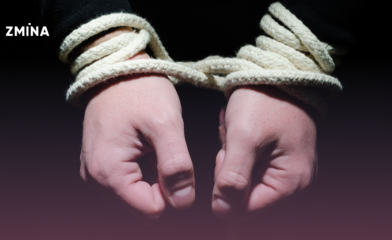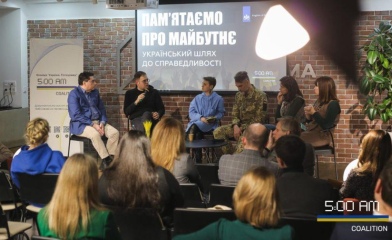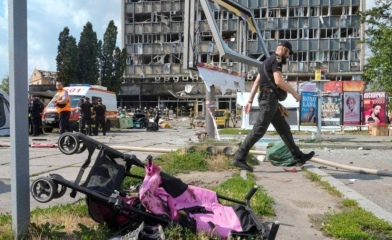The Russian Federation considers the passportisation of the population of the occupied territories as a way of expansion - using methods of pressure, coercion, intimidation, and restriction of basic human rights.
This is stated in the analytical report "Imposing Russian citizenship on Ukrainian citizens in the occupied territory of Ukraine and in Russia", prepared by experts of the coalition "Ukraine. Five in the Morning" coalition . The research was presented on 27 March in Kyiv.
"The main conclusions we have reached in more than six months of collecting materials for the report: Russia seeks to impose its citizenship on as many citizens of post-Soviet countries as possible, which it considers its sphere of influence. All armed conflicts initiated by Russia were preceded by forced passportisation. Russian legislation clearly spells out the mechanisms of expansion in those parts of neighbouring states that it can occupy and annex," says Olga Lototska-Kolesnichenko, a documentary filmmaker with the Ukraine. Five in the Morning" coalition.
At the same time, the actions of the occupation administrations are subject to the propaganda narrative that all residents of the occupied territories want to voluntarily obtain Russian citizenship. In reality, however, this process is causing quite a bit of resistance among the Ukrainian population. Most of those who really wanted it had taken out passports before the full-scale invasion. Therefore, after 4 October 2022 (the date of signing the law on the accession of part of the occupied territories to the Russian Federation), any carrot methods were curtailed and a harsh stick began.
Oleh Kolesnichenko, a documentary filmmaker with the coalition "Ukraine. Five in the Morning" coalition, clarifies that local occupation administrations have been given expanded powers in order to meet the target of at least 80 per cent of passport issuance in the temporarily occupied territories. Common methods include restrictions on the basic rights to education, free movement, and medical care, as well as outright terror, such as forced evictions from their place of residence. It is often impossible to evacuate the occupied territory without a Russian passport.

"For Russians, words and actions, as well as messages for external and internal audiences, are different realities. When they claim externally that four million passports have been issued in the occupied territories, internal reports show that this is far from the truth," he says.
"The methods of pressure used by the Russian Federation to force the passport issue include restricting access to medical services, essential medicines, such as insulin, obtaining secondary education documents and the possibility of entering universities. At the same time, the Russian media create a distorted picture, trying to convince people that the passporting process is successful and voluntary," says Lyubov Smachylo, analyst at the Media Initiative for Human Rights.
Kateryna Rashevska, an expert at the Regional Centre for Human Rights, emphasises that Russia is actually implementing the "Trap" plan. "Even if a person has taken a passport, it does not guarantee their safety and the exercise of their rights and guarantees. Because the Russian passport is not about rights, but about responsibilities," says the human rights activist. "For Russia, it is also about obtaining a demographic resource - mobilisation and labour. Similar processes were implemented by Nazi Germany during the Second World War."

Experts of the coalition "Ukraine. Five in the Morning" coalition point out that the changes made to the Russian law on Russian citizenship before the full-scale invasion already stipulated that the Russians planned to seize as much territory of Ukraine as possible, distribute their passports and use both the presence and absence of Russian citizenship in their own interests to persecute civilians in the occupied territories. Thus, Russia is violating not only fundamental human rights principles, but also a number of norms of international humanitarian law and the UN Charter.
Residents of the occupied territories who were forced to take out a Russian passport found themselves in a complicated legal situation. Ukraine, like most countries in the world, does not recognise imposed Russian citizenship, so it considers these citizens to be its own. Russia, despite the existence of a provision on dual citizenship in its legislation, does not recognise the Ukrainian citizenship of these people. However, human rights activists emphasise that Ukraine does not prosecute its citizens for forcing Russian citizenship on them.
The study is available in Ukrainian and English.
Watch the video of the presentation here.



